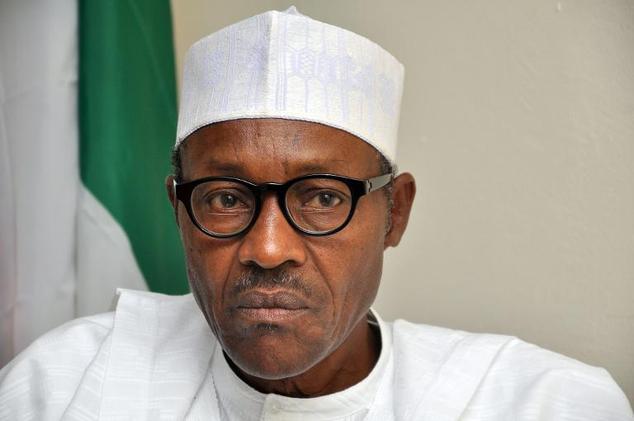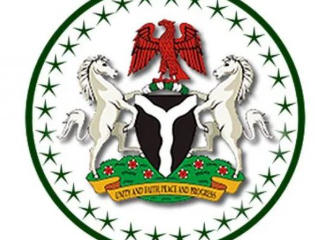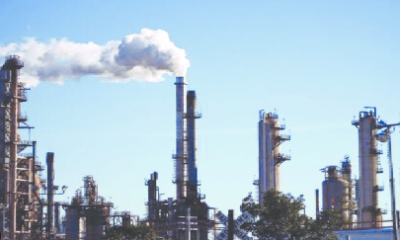Business
More headache for Buhari as oil plummets
Published
10 years agoon
By
Olu Emmanuel
• Oil glut threatens production target • Stocks hit 3-year low
By ODUNEWU SEGUN
WITH the federal government setting the 2016 budget on oil benchmark of $38 a barrel for the N6.077 trillion it budgeted, current forecasts show that oil prices could fall as low as $20 per barrel next year, as the Organisation of Petroleum Exporting Countries’ (OPEC) decision to abandon a formal production quota exacerbates a bulging supply glut.
There are indications that prices would continue to fall because of many factors. For instance, the November 2016 market report of the cartel has it that the world economic growth remains modest at 3.1per cent in 2015, mainly due to a continued slowdown in emerging and developing economies, as well as low US growth in the third quarter.
The N6.077 trillion budget with a revenue target of N3.82 trillion, projects a deficit of N2.22 trillion or 2.16 per cent of GDP, and projects that recurrent expenditure will drop from 84 per cent in this year’s budget to 70 per cent in 2016 while capital expenditure of 16 per cent in the 2015 budget was raised to 30 per cent in 2016.
The revenue target of N3.82 trillion shows that value added tax (VAT) in 2016 will contribute N67.7 billion from the N67.5 billion projected in 2015. The government is also projecting an average growth rate in 2016 of 4.37 per cent and expects this to increase by 10 per cent year-on-year through 2017 to 4.61 per cent in 2018.
Also, the recent drop in the prices of crude affected Nigerian stocks which shed 2.4 percent to hit a new three-year low after global oil prices tumbled to their lowest in more than six years.
The stock market, which has the second-biggest weighting after Kuwait on the MSCI frontier market index, fell for the second day on thin volumes to levels not seen since December 2012.
Similarly, the growing supply glut in the global oil market also poses serious threat to Nigeria’s projected production target for next year, industry experts said.
Other threats include the maturity of some fields and the global economic outlook.
As part of the budget, federal government had approved the Medium-Term Expenditure Framework, with a projected crude oil production of 2.2 million barrels per day for next year’s budget, down from 2.2782 million bpd in the 2015 budget.
The supply glut in the world oil market, said to be oversupplied to the tune of 1.5 million to two million bpd is expected to be exacerbated by the full return of Iran to the market after the expected lifting of Western sanctions.
More so, with the failure of OPEC to address the glut in the market at its last meeting in Vienna by retaining its production at current levels which has further swollen a glut that has lowered prices.
Reacting to Nigeria’s projected production target for 2016, Head of Energy Research at Ecobank Capital, Dolapo Oni said the target would be difficult to meet considering the fact that Nigeria’s production for 2015 has been less than 2.1 million bpd.
According to him, Nigeria’s production has been on the decline since 2010, and may likely continue so in 2016.
According to a report by OPEC, US growth has been revised to 2.4per cent in 2015 and 2.5per cent in 2016, while total OECD growth remains at 2.0per cent for 2015 and 2.1per cent for 2016.
The report maintained that in 2016, world oil demand growth is seen reaching 1.25mb/d, in line with the previous month’s assessment, to average 94.14 mb/d. It maintained that OPEC oil supply is estimated to average 57.24 mb/d in 2015, an increase of 0.72 mb/d, unchanged from the previous month’s estimation. The report indicated that the forecast for 2016 non OPEC oil supply remained unchanged, showing a contraction of 0.13mb/d to average 57.11 mb/d.
In other words, the world would continue to witness slow economic growth, meaning less demand and low prices for at least greater part of 2016. This development is expected to haunt many oil countries, especially Nigeria whose economic planners had earlier expected much improvement next year.
However, as the negative impact of the present lull in the market continues to haunt the nation with virtually all the 36 states unable to pay salaries as when due, many local and foreign observers are waiting to see not only the options that OPEC and others would deploy but also the options available for President Muhammadu Buhari-led administration to rescue the nation’s economy from collapse
The bourse, which is down 20.6 percent year-to-date, broke below the psychologically key 27,000 point line on Wednesday. Banking shares fell the most, down 3.1 percent as investors sold off relatively liquid financial stocks.
Budget and Planning Minister Udoma Udo Udoma said the cabinet was assuming a conservative oil price of $38 a barrel and oil production at 2.2 million barrels per day. Lawmakers passed the 2015 budget at $53 a barrel in April.
“The present administration is one that has foresight and had long prepared for this through its policies and programmes in various sectors, agriculture inclusive. Government is diversifying. Yes, it will affect us but not to the extent people think. There are areas the country can still exploit. It is just a challenge that as a people we should not be lazy and get prepared for the future. Oil will not be there eternally.”
Speaking as the price of a barrel of Brent crude, the benchmark international contract, slipped 5.2 per cent to $40.75 in New York, the lowest since February 2009, Ole Hansen, head of commodity strategy at Saxo Bank, said it was “difficult to rule out anything”.
The price of crude has already plunged nearly by 64 per cent since June 2014, when a barrel of Brent cost $114, after Saudi Arabia opted to pump at near-record levels to maintain market share while putting pressure on producers in North America.
Hansen said that downward pressure on crude oil prices would intensify in the first three months of 2016 because of increased output from Iran and a seasonal rise in US stockpiles. Goldman Sachs also warned that OPEC’s inconclusive meeting could trigger further falls, to as low as $20 per barrel, and said that prices were now likely to remain “lower for longer”.
Also, global stock markets fell sharply as oil prices remained significantly low, more so when the Organisation of Petroleum Exporting Countries (OPEC) decided to leave production unchanged.
According to some experts, the decision by the government to benchmark the 2016 budget with an oil price of $38 per barrel is good decision which took into cognizance the realities of happenings in the global oil industry.
Director, Centre for Petroleum Energy Economics and Law, University of Ibadan, Prof. Adeola Adenikinju, said that the $38 per barrel was realistic, describing it as a conservative approach by the government. “It will encourage the government to cut its coat according to its cloth. However, if the government experiences an upside in the global price of oil, then it can always submit a supplementary appropriation bill to the National Assembly.”
You may like


NMDPRA – Nigerians spend N1.3tn on petrol in June amid soaring energy costs


NOGASA urges government intervention as Dangote refinery’s direct supply plan sparks industry fears


FG defends borrowing plan, claims 10 states involved


Nigeria sheds Top importer status as Dangote refinery transforms Africa’s fuel market


Kaduna women protest alleged KRPC chemical pollution, Demand action


NNPC Foundation donates 25,000 STEM textbooks and mini libraries to 25 secondary schools
Trending

 Health6 days ago
Health6 days agoDeclassified CIA memo explored concealing mind-control drugs in vaccines

 Entertainment1 week ago
Entertainment1 week agoSimi addresses resurfaced 2012 tweets amid online backlash

 Crime6 days ago
Crime6 days agoSenior police officers faces retirement after Disu’s appointment as acting IGP

 Education1 week ago
Education1 week agoPeter Obi urges JAMB to address registration challenges ahead of exams

 Health1 week ago
Health1 week agoNAFDAC issues alert on suspected revalidated SMA Gold infant formula

 Comments and Issues7 days ago
Comments and Issues7 days ago20 Critical Fixes to Save Nigeria’s Democracy from Electoral Fraud

 Football1 week ago
Football1 week agoMartínez ruled out of Everton clash with calf injury

 Latest7 days ago
Latest7 days agoICPC yet to respond to El-Rufai’s bail request as arraignment date looms

